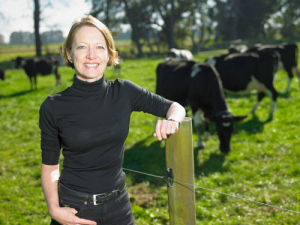The role of the Environmental Protection Authority (EPA) in New Zealand is to keep the environment and people safe, whilst enhancing lifestyle – which means considering the economy as well.
These aspects are taken into account in all the decision-making processes, recognising that lifestyle requires income – and that goes for NZ as a whole as well as individuals.
Much of the EPA’s work involves facilitating the decision-making process for proposals from applicants for nationally significant resource management proposals under the Resource Management Act (RMA). Another role of importance for the primary sector is administering and making decisions on new applications under the Hazardous Substance and New Organisms (HSNO) Act.
Hazardous substances include fireworks as well as agricultural (and industrial and domestic) chemicals. It is the role of the EPA to examine the pros and cons associated with new chemicals coming into NZ. Regulatory Science, involving consideration of the existing research into the effectiveness of the chemical on weeds, the effect on other plants and the environment, and the effect on human health, has developed considerably in the last few decades.
At the same time as assessing applications for new chemicals, the EPA evaluates new research on chemicals already in use. We examine how the research was done, the conclusions, the implications, the alternatives and the applicability to NZ.
Glyphosate (Roundup) is a case in point.
The EU is still debating extension of the licence for sale, reflecting public concern about links to cancer. Fears were exacerbated by the recent media coverage of ‘glyphosate concentration in human urine increasing’. The research paper did state that the concentration found was 50 times lower than that associated with liver inflammation in rats, but it had increased over the last 30 years.
Glyphosate targets photosynthesis, which occurs in plants, algae and some bacteria, not in animals (including humans). If ingested it passes through the body, and is excreted in the urine unchanged. The LD50 (lethal dose for 50% of the test animals) is about twice as much as table salt.
A meta-review published by the European Food Safety Authority in September this year indicated no effect of glyphosate as an endocrine disruptor.
In terms of cancer, the International Agency for Research on Cancer (IARC) put glyphosate in Category 2a – probable cause of human cancer. The report is now the subject of an investigation, but 2a also contains red meat and frying. Category 1, definite cause of cancer, contains asbestos, tobacco, solar radiation and alcohol.
IARC reports on ‘hazard’; the role of the EPA is to consider both hazard and risk. Chemicals are hazards, just like fireworks. To reduce the risks we impose restrictions such as licence to operate, reduced sales outlets, protective clothing, and regulations on where the chemicals can be applied.
Banning glyphosate would increase weed competition in crops and reduce the ability to use ‘no-till’ methods of crop establishment. This would increase establishment costs, and increase greenhouse gases through increased fuel and loss of organic matter from the soil. Estimates from the UK are that yields of crops would be reduced, and the area considered suitable would be cut back considerably (20% in wheat and 37% in the case of oilseed rape). This would create shortages, which in turn would increase food prices.
An alternative to glyphosate is paraquat, which is extremely toxic; it used to be known as the widow’s choice….
The EPA is concerned about chemical use in NZ which is why it employs experts to assess and evaluate. Our people recognise that they are responsible for protecting what is a unique country, including all the people within it.
They also recognise that protecting the environment takes income. Achieving the balance takes knowledge and effort; the EPA is committed to both.
• Dr Jacqueline Rowarth is chief scientist at the Environmental Protection Authority (EPA).


















